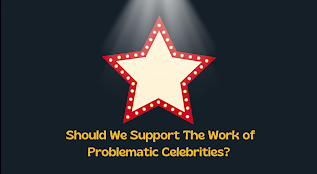Last Friday, music producer Sean John Combs, also known as ‘P Diddy’, was sentenced to fifty months in prison based on accounts of sex-trafficking. For the victims, this moment of justice has been long-awaited. Nonetheless, Combs still maintains a considerable number of monthly listeners on Spotify. In fact, “that figure rose about 50 percent to 4.8 million” around the time of his arrest last fall.
The question arises: Should we continue to support the work of celebrities who have done or said horrible things?
Oftentimes, through the influence of social media, fans feel responsible to discontinue interactions with a celebrity’s work. While it is a personal decision, it is not obligatory. Both cinema and music are very personal to an individual. Therefore, separating the name from the art is crucial.
It is undeniable that, regardless of whether you listen to him or not, Kanye West, a hip-hop artist, is widely recognized in the industry for his award-winning albums like “The College Dropout” and “Late Registration.” However, the disturbing comments that he has made have cost him his career, reputation, and even his relationship with his own family. Not only a loss for West himself, but also for the fans who mourn his music.
Michael Jackson, considered to be the “King of Pop,” has allegations surfacing sixteen years after his death. Numerous documentaries have shed light on the sexual abuse that took place towards young boys and their families, including Leaving Neverland. This film has sparked such intense debate that “Michael Jackson’s estate is suing HBO, which showed the documentary in the US, for $100m.” Most of the Jackson family, as well as a significant number of devoted fans, continue to disregard the claims.
Furthermore, related misconduct has occurred in the realm of cinema. Both Woody Allen and Roman Polanski, popular filmmakers during the 1960s through the 1980s, face offenses of sexual abuse. Since then, they have, appropriately, been iced out from the spotlight.
A key takeaway from all these big names is to, as individuals, acknowledge the immoral character that many of them represent and have compassion for the victims.
Still, it doesn’t take away from their artistic influence on society. Once work is released by a creator, that material is left to be consumed and judged. Fans possess the freedom to interact with that art if they wish. All in all, cancel culture can’t change the legacy of a person’s work.








